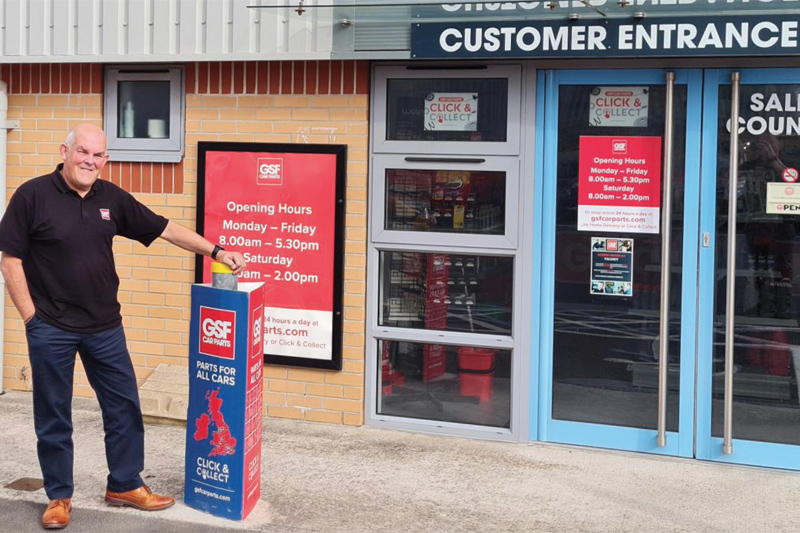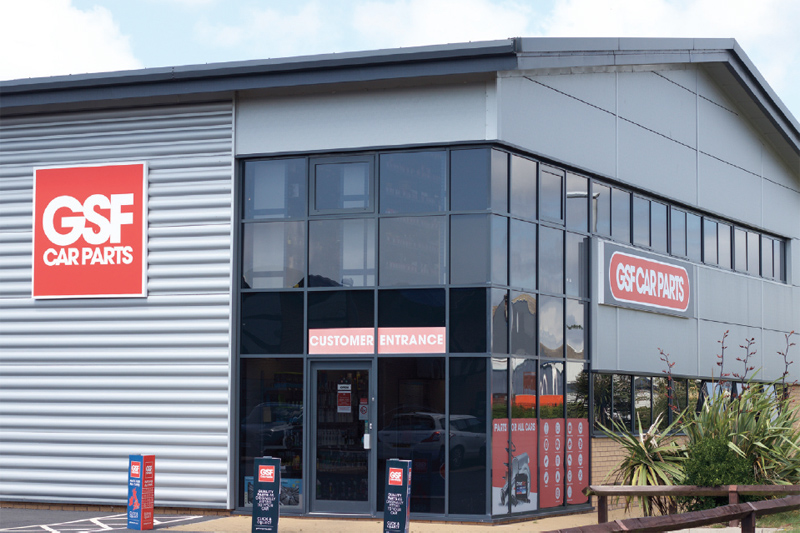GSF considers the evolving role of the motor factor

In part two of his interview with PMF, the GSF divisional director, Simon McMullen, tackles the evolving role of the motor factor, shifts in product range and car parc, and what advice he would give a young person looking to forge a career in this sector.
Q. With the increasing complexity of modern vehicles and the wider range of parts needed, how do you see the role of a motor factor evolving in the future?
A. “With the increase of both EVs and hybrid models, the volume of traditional motor factor stock items will inevitably be reduced. Transmission products, engine components, timing belts and engine filters will see a decline in the coming years. This will necessitate a need to increase EV-related products, wraparound support for garages and strong training provisions.
“With this, the need for internal training of our sales teams becomes even more paramount. Already we are seeing excellent take-up from garages of professional training that will enable them to adapt to the changing vehicle parc and the qualifications they need for this.
“Items that I once sold 30 or 40 units per month of many years ago ceased to be prevalent over time. Components, such as Marina lever arms, Mini bypass hoses, Ford clutch quadrants to name a few. I forecast the same will occur in many current motor factor lines.”
Q. Your previous comment about the shift from 10 oil filters covering 85% of the car parc to the vice versa situation today is intriguing – can you elaborate on how this shift has affected the business and customer interactions?
A. “When I first started 40 years ago, VMs often used the same oil filter; for example, a Ford Pinto oil filter was also on Volvos. By default, the 10 most popular oil filters were stocked by most garages along with spark plugs, oils and other consumables.
“We would often receive stock orders asking for 20 PH2857A, 20 PH966B, 40 BPR6ES and 20 BCPR 6ES. That helped our sales teams in building longstanding relationships with our customers; often we would deliver it to the customer, put it on their shelves and create basic stock control. By doing this, we were assured of regular, repeat business, since their shelves were labelled with our part numbers and changing supplier was seen to be a chore.
“I used to supply fan belt racks covering 20 part numbers, as these were changed on a regular basis, as were bulb and wiper blade racks.
“With so many varied vehicles and change in the overall pareto, many garages no longer carry stock lines aside from basic oils and consumables.
“By default, the interaction between customer and garage has changed with regard to stock, but their needs are possibly more than they were 40 years ago given there’s much variation in the UK vehicle parc.”

Q. What advice would you give to younger colleagues or newcomers entering the motor factor industry today, based on your extensive experience?
A. “That is a tough question, as the workplace has evolved so much in 40 years. I advise my younger team to listen to the customers’ needs as individuals, opposed to a generic approach. All customers are unique, as are their requirements. Getting to know the customers as individuals opposed to them being just an account number is a key ingredient for successful long-term working relationships. Customer service is paramount.
“At GSF we offer lots of training to our teams, much of which involves professionally accredited qualifications. I strongly urge all colleagues to undertake any training offered, as it will assist them in their current role, enhance their progression opportunities, but also assist them in their personal lives.
“This industry is very rewarding, and I like to think I’m a good example of how you can make a successful career out of. It can be challenging, but what job isn’t?
“Finally, listen to those around you. Nobody knows 100% of everything, but if there is a collective of people tasked with solving a problem, usually there is a solution that can be drawn from within that group.”

Q. Can you share any memorable experiences or challenges you faced during your career that helped shape your perspective on the motor factor industry?
A. “An amusing tale was back in the late eighties when the branch I worked in had a power cut. Our branch manager wanted a drink, so the YTS colleague wired a group of 038 mini batteries into a series circuit to boil the kettle. I can’t tell you what was said to him… but he didn’t last long after that!
“It’s also striking how quickly parts become obsolete as the vehicle parc changes so rapidly. For example, I was in a GSF branch a few weeks ago and a sales advisor was struggling with a call. I was observing and realised he didn’t know what a Morris Marina lever arm was or actually did!
“When I asked him to check “small hole” or “big hole” then quoted him the part numbers, he looked at me as if I was some bizarre creature! This is a prime example of how fast our industry has changed and is evolving on a daily basis. In the same way, it underlines the need to ensure our offering remains current while keeping our obsolescence to a minimum. I really admire our current product team for doing this challenging task.
“I have been fortunate to work with so many capable people over the years as my mentors. The majority I keep in contact with, while, sadly, a few are no longer with us. My current GSF team are probably the best I have been fortunate to lead.
“What’s exciting for me now, even after 40 years, is the potential we have ahead of us. GSF now has new owners and the introduction of Sukhpal Singh Ahluwalia as our executive chairman and Steve Horne as our CEO are really positive steps for our business. Our industry is at a turning point where we need to be on the front foot and that’s exactly what we’re doing. We have big plans to grow GSF, and with that comes fresh opportunities for new and emerging talent to forge a successful career in this business.”








